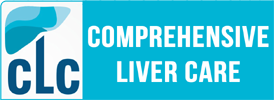Liver plays a crucial role in keeping us healthy, performing various functions such as filtering blood, metabolizing nutrients, and detoxifying harmful substances. Liver diseases can significantly impact our overall well-being, making prevention strategies paramount. Hepatologists, specialists in liver health, offer valuable insights and recommendations to safeguard this vital organ. In this comprehensive guide, we delve into expert advice and actionable tips for preventing liver disease effectively.
Understanding Liver Disease
To begin, it’s essential to grasp the types and causes of liver disease. Hepatologists categorize liver diseases into various types, including viral hepatitis, fatty liver disease, alcoholic liver disease, and autoimmune liver diseases. Viral hepatitis, caused by hepatitis viruses A, B, C, D, and E, can lead to acute or chronic liver inflammation. Fatty liver disease, often linked to obesity and unhealthy diets, results in the accumulation of fat in liver cells. Alcoholic liver disease stems from excessive alcohol consumption, while autoimmune liver diseases occur when the immune system mistakenly attacks liver cells.
Lifestyle Modifications for Liver Health
Hepatologists emphasize the significance of lifestyle modifications in preventing liver disease. Adopting a balanced diet rich in fruits, vegetables, whole grains, and lean proteins promotes liver health. Reduce intake of processed foods, sugary beverages, and saturated fats to prevent fatty liver disease. Regular exercise aids in weight management, reduces liver fat, and improves overall metabolic functions. Avoiding excessive alcohol consumption and quitting smoking are pivotal steps in preserving liver health.
Vaccination and Screening Programs
Viral hepatitis, particularly hepatitis B and C, can lead to chronic liver disease if left untreated. Hepatologists stress the importance of vaccination against hepatitis B to prevent infection. Additionally, screening programs for hepatitis C target early detection and intervention, minimizing the risk of complications such as liver cirrhosis and hepatocellular carcinoma. Routine check-ups and screenings are recommended for individuals at high risk of liver disease, including those with a family history or predisposing factors.
Medication Safety and Awareness
Hepatologists advise on medication safety to prevent drug-induced liver injury. Always follow prescribed dosages and avoid self-medicating, particularly with over-the-counter medications known to affect liver function. Consult healthcare professionals, including pharmacists and hepatologists, regarding medication interactions and potential liver-related side effects. Stay informed about the impact of medications on liver health, especially when managing chronic conditions.
Managing Underlying Health Conditions
Certain underlying health conditions, such as diabetes, obesity, and high cholesterol, can contribute to liver disease progression. Hepatologists recommend effective management of these conditions through lifestyle changes, medication adherence, and regular medical monitoring. Controlling blood sugar levels, maintaining a healthy weight, and optimizing lipid profiles are essential in reducing liver disease risk factors.
Environmental and Occupational Safety
Environmental toxins and occupational hazards can pose risks to liver health. Hepatologists advocate for environmental awareness and minimizing exposure to harmful substances such as industrial chemicals, pesticides, and pollutants. Occupational safety measures, including proper protective gear and adherence to safety protocols, are crucial in preventing occupational liver damage among workers in high-risk industries.
Holistic Approaches to Liver Health
In addition to conventional preventive measures, hepatologists highlight the value of holistic approaches to liver health. Stress management techniques such as meditation, yoga, and mindfulness promote overall well-being, reducing the impact of stress-related liver conditions. Incorporating nutritional supplements with hepatoprotective properties, such as milk thistle and turmeric, may offer additional support for liver function.
Community Education and Support
Community education initiatives play a vital role in raising awareness about liver disease prevention. Hepatologists collaborate with healthcare organizations, advocacy groups, and community leaders to disseminate educational resources and promote healthy lifestyle choices. Support groups provide emotional and social support for individuals living with liver conditions, fostering a sense of community and empowerment.
Conclusion
In conclusion, preventing liver disease requires a multifaceted approach encompassing lifestyle modifications, vaccination, medication safety, management of underlying health conditions, environmental awareness, holistic practices, and community engagement. By implementing the insights and strategies shared by hepatologists, individuals can proactively safeguard their liver health and reduce the burden of liver disease on a global scale. Stay informed, stay healthy, and prioritize your liver’s well-being for a vibrant and fulfilling life.

